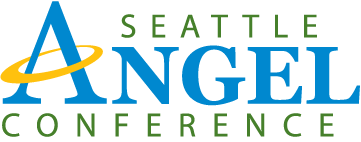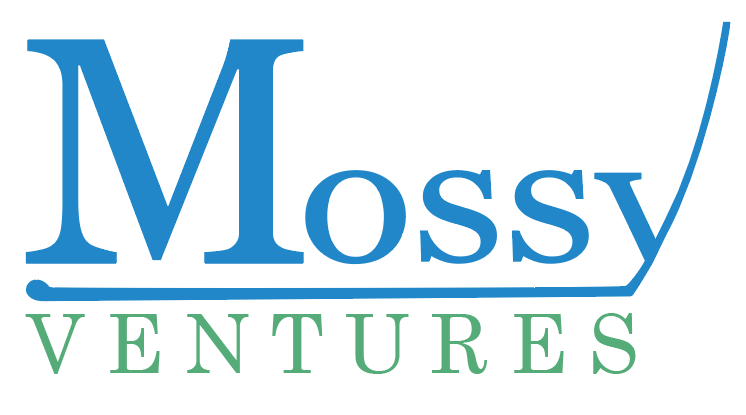If your startup is raising an early seed round this spring, the Seattle Angel Conference is a perfect springboard to meet investors and fine-tune your message. And offers a chance to win $200k investment!
The blog-series “Startup People of Seattle” introduces some of the key personas in the ecosystem to learn more about what they are doing, to share their thoughts and ideas, and to promote networking.

In our 15th interview, meet Eric Berman:
“E8 was formed with the thesis in mind that sustainability and profitability often go hand in hand.”
Eric Berman started his career at Microsoft. Today, he is co-chair at Element 8 Angels.
https://www.linkedin.com/in/erberman/
Q: Could you shortly introduce yourself and talk about your background when it comes to startups?
A: I have been co-chair of Element 8 Angels for four years now. We are a Seattle-based angel investing group that primarily focuses on cleantech startups. So, startups we invest in are operating in the areas renewable energy, energy efficiency, energy storage, but also clean water, waste mitigation & recycling and sustainable agriculture are interesting to us.
My educational background is in electrical engineering and physics. I have a master’s degree in electrical engineering, however, I have never worked as electrical engineer. I started off my career as program manager at Microsoft. After that I was Vice President at Expedia. Then I spent a year in a startup that I’d rather forget about before getting involved in E8.
When getting involved in E8 my motive was to have some social or environmental impact. After starting to explore angel investing, I realized that I enjoy the investor-side much more than operating a startup. However, I am a very risk-averse person, especially when it comes to my money, and investing in early stage companies is about the riskiest thing you can do with your money. So, I calculated how much money I had to invest in order to be appropriately diversified. Then I pretended the money was gone already which made writing checks so much easier. I couldn’t lose anything anymore because mentally I had already lost all that money.
Another mental trick of mine that has helped me overcome risk-aversiveness has been to call the money I lose “tuition”. When I started getting involved in angel investing, I considered going to business school to get more educated in startup financing, but then I decided to learn investing by making investments. I already had my professional network and there was no job I wanted that required some sort of degree, so there was no point in going to school. Instead of spending $80k on classes, I could spend $80k on investments. If I would get somewhat of a return, I would already be better off than had I invested all that money into a degree, and either way I would learn.
So, this is the story how I got into angel investing. By now, I have been doing this for over ten years and I have written a good number of checks. I am still waiting on a big pay-out, but many of the companies I invested in are still on their way.
Q: You said you would rather forget about the time you were part of a startup, what have you learned from that experience?
A: There is no one thing that can guarantee success, but there are many things that in and off themselves can cause failure. Also, culture matters. It is very important that the values of the founding team members are compatible. Aside from that, hunger is key.
Q: E8 focuses on cleantech startups. Other investors have said to me before that they choose not to limit themselves to investing in one specific kind of startup only because that would limit their investment opportunities too much. What is your opinion on this?
A: If you are strictly looking to maximize your profit you’ll probably invest in tech and medical companies. E8 was formed with the thesis in mind that sustainability and profitability often go hand in hand. E8 is mission-focused, and a portion of my portfolio I want to invest in impact. But don’t confuse investing through E8 with philanthropy. We invest in startups because we want them to grow into successful businesses. If they are not profitable and don’t survive on the market our impact is zero. So, we do look for returns.
Coming back to your question, everybody involved in E8 can also invest outside of E8 in companies with different focuses. Being part of E8 doesn’t bind an investor to only invest in deal flow he gets exposed to via E8.
Q: How does the investment process look like at E8?
A: Either companies know E8 and apply by themselves, or we find companies and recommend them to apply. After that, they go through a screening process and the startups that look promising get the chance to present to the membership. If there is interest, members then collaborate to do due diligence. We write a brief (10-20 pages) due diligence report summarizing aspects that an investor should be aware of before E-8 members write checks individually. Recently, we also had a fund, but that is now closed.
Q: What do you think of Seattle’s startup ecosystem?
A: I think we have a great ecosystem fed by the tech giants Microsoft and Amazon. Because of those companies we have many people here who feel they have learned how established companies work and now want to try finding success as entrepreneurs. Also, many investors have been part of Microsoft or Amazon at some point in their career. So, mostly thanks to these two companies, we have many startups, talent, mentors and investors in Seattle. What stands out about the culture here is that many people really want to do good and try to give back to the ecosystem. People here are very engaged in the success of the startup community. However, from E8’s perspective, in order to get sufficient deal-flow in cleantech, we have to look in a greater area than just Seattle simply because there wouldn’t be enough companies here.
Q: What are some other impact-driven organizations that pop into your mind and that are good resources for startups?
A: Fledge is impact-driven like E8. Luni Libes would be the contact point for Fledge. Others are Powerhouse in Oakland, Elemental Accelerator in Honolulu, Greentown Labs, and LACI in LA.
Q: What recommendation would you give someone who is interested and new to all things startup in Seattle?
If you are interested in investing, I think SAC is a great place to get involved. Go to meetups, join groups, and network. Even if you don’t write a check, see if you can help with due diligence somewhere. You learn so much analyzing companies. Those would be my recommendations. Also, I should mention that being an angel investor is legally restricted only to “accredited” investors.
Wikipedia Def. Accredited Investor: “In the United States, to be considered an accredited investor, one must have a net worth of at least $1,000,000, excluding the value of one's primary residence, or have income at least $200,000 each year for the last two years (or $300,000 combined income if married) and have the expectation to make the same amount this year.” (https://en.m.wikipedia.org/wiki/Accredited_investor, Last retrieved on 10.30.2019)
Here are some things I learned from this interview:
In the interview Eric mentioned some resources and organizations, find out more about them here:
About Seattle Angel:
A strong ecosystem creates an environment that allows startups to thrive. Seattle Angel’s goal is to strengthen Seattle’s startup ecosystem by increasing the access to funding for entrepreneurs to push their ideas further.

About the author: Sven Goepfrich
https://www.linkedin.com/in/svengoepfrich/
Sven Goepfrich is currently finishing his MBA in Syracuse. His studies focus on technology, innovation and entrepreneurship. At his school, he is working for the department of finance. Sven was actively interning with the Seattle Angel Conference in summer 2019. He is currently looking for full-time career opportunities in this field.
If your startup is raising an early seed round this spring, the Seattle Angel Conference is a perfect springboard to meet investors and fine-tune your message. And offers a chance to win $200k investment!
The best way to start early stage investing is to learn by doing. The Seattle Angel Conference is built for just that.
Seattle Angel Conference (SAC), a production of Mossy Ventures, announces the SAC 22 winners of the business competition investor education program. Seattle Angel Conference (SAC), a production of Mossy Ventures, announces the SAC 22 winners who have participated in an progressive elimination program that started with 80+ early stage startups. On November 16, six finalists […]

